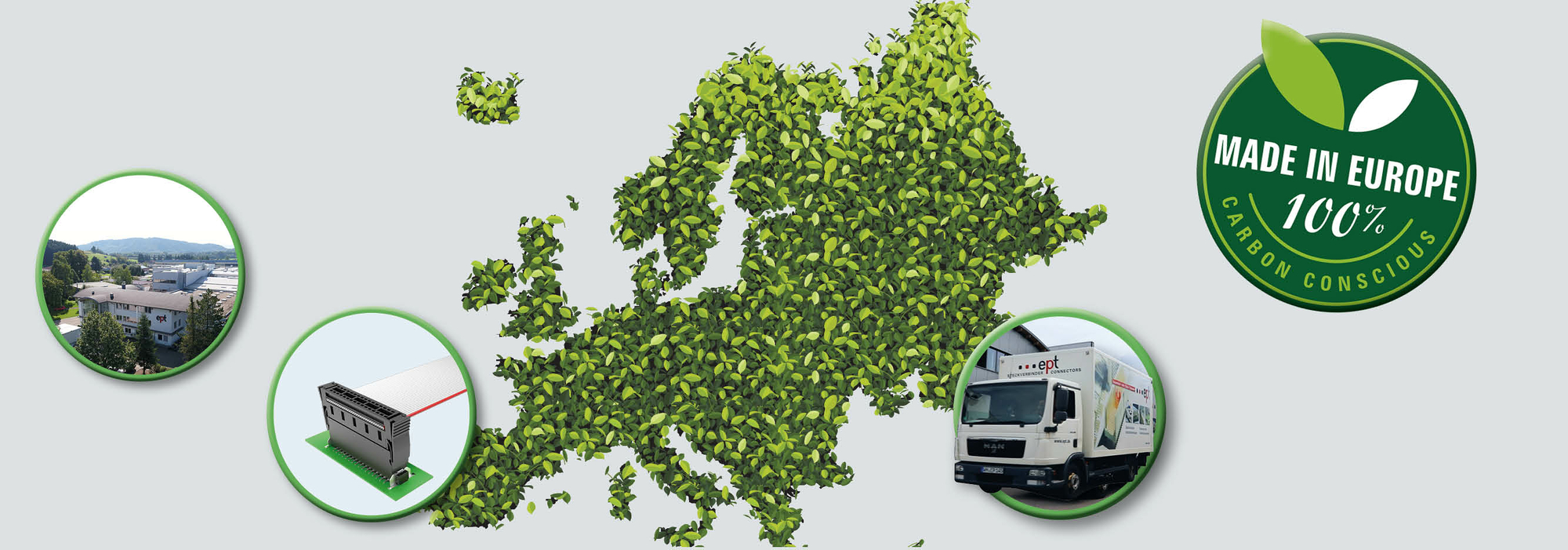Board-to-board connectors - reliability beyond specification
ept´s focus on production and supply processes goes beyond the standards
Industrially manufactured goods are being put to the test more and more. In addition to high quality standards and compliance with technical specifications, the environmental compatibility of all elements of the supply chain is becoming increasingly important. And the connector market is no exception. ept GmbH traditionally coordinates all production and supply processes in such a way that, in addition to the highest level of quality, all conceivable sustainably oriented corporate management criteria come into play.
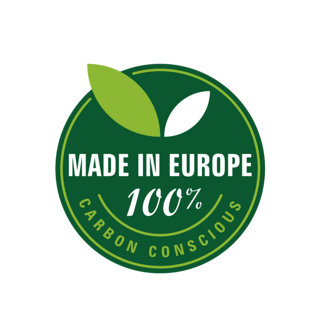
A supplier has to meet strict requirements to even be considered as a supplier of components for manufacturing branded products. Companies are confronted with an increasing variety of verification requirements imposed on them by legislators, especially at the international level. In addition, globally active corporations are safeguarding contractors’ reliability by rapidly making the existence of certain certifications obligatory as the basis of a supply agreement. And finally, geopolitical tensions have recently contributed to the fact that, following the example of U.S. initiatives, the industrial base is also to be strengthened at the European level, thereby reducing dependence on importing key components from China wherever possible.
That which already poses considerable challenges for each individual supplier is even further complicated by the absolute necessity to reduce global carbon emissions. While the public discourse often gives the impression that companies located in the European Economic Area are only just now devoting themselves to this topic, sustainable management has always been a core element of corporate management for ept GmbH in this context. Using existing resources economically and prudently means protecting the environment while continuously improving the cost efficiency of all production and supply processes.
That which already poses considerable challenges for each individual supplier is even further complicated by the absolute necessity to reduce global carbon emissions. While the public discourse often gives the impression that companies located in the European Economic Area are only just now devoting themselves to this topic, sustainable management has always been a core element of corporate management for ept GmbH in this context. Using existing resources economically and prudently means protecting the environment while continuously improving the cost efficiency of all production and supply processes.
Punctuality versus environmental protection for board-to-board connectors
The immediate effects of a sustainably oriented production base are clearly illustrated by the example of transport routes. Connectors intended for use in vehicle construction, like all other supplied components, must be available just in time and, due to lack of storage space, cannot be stocked by automotive manufacturers for prolonged periods. If the components are imported to Europe from the East Asian region, they are usual not transported by sea but rather by air in order to avoid unforeseeable delays. The higher transport costs associated with this are proportionate to the potential losses that a vehicle manufacturer would incur in the event of a delivery not arriving on time.
Apart from the shipping costs, however, transporting connectors by air has a seriously negative impact on companies’ environmental footprints, as is clearly shown in the result of a calculation regarding ept PCB connectors of the One27® series. These connectors are used in things such as inverters for e-mobility and control systems for mechanical and plant engineering and are manufactured by ept at the Harbatov site in the Czech Republic. Deliveries to car manufacturers in all parts of Europe are usually made by HGV and just in time in accordance with customer requirements.
Apart from the shipping costs, however, transporting connectors by air has a seriously negative impact on companies’ environmental footprints, as is clearly shown in the result of a calculation regarding ept PCB connectors of the One27® series. These connectors are used in things such as inverters for e-mobility and control systems for mechanical and plant engineering and are manufactured by ept at the Harbatov site in the Czech Republic. Deliveries to car manufacturers in all parts of Europe are usually made by HGV and just in time in accordance with customer requirements.
A low level of CO2 in HGV Transport of board-to-board connectors
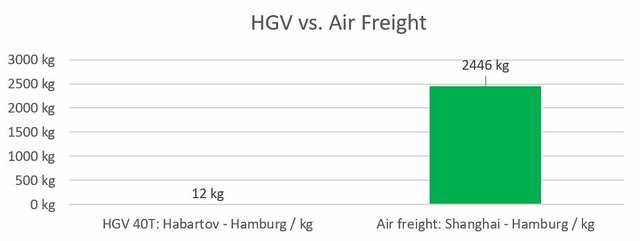
The result when calculating the CO2 emissions associated with transporting 1 kg of connectors of the One27® series to their destination in Hamburg depends on variables that may significantly differ in individual cases. For HGV transport, for example, this includes the vehicle type and current fuel consumption, the specific routing, and the traffic situation. Similarly, in the case of air freight, factors such as the type of aircraft or the currently selected flight route must be taken into account.
The calculation made by ept comes to the conclusion that transporting 1 kg of connectors comparable to the One27® series by air from Shanghai to Hamburg generates CO2 emissions totaling an average of 2,446 kg. In contrast, the comparative value for 40-ton HGV transport from the Harbatov plant to Northern Germany is only 12 kg – i.e., around 200 times lower.
The calculation made by ept comes to the conclusion that transporting 1 kg of connectors comparable to the One27® series by air from Shanghai to Hamburg generates CO2 emissions totaling an average of 2,446 kg. In contrast, the comparative value for 40-ton HGV transport from the Harbatov plant to Northern Germany is only 12 kg – i.e., around 200 times lower.
Recycling of board-to-board connectors with high potential
In terms of CO2 emissions, transport routes play a major, but not the only, role in the manufacturing and delivery processes for connectors. The focus in terms of the actual product is primarily on the metals that comprise the contacts and plating as well as the synthetic materials used for the housing.
According to ept’s calculations, the copper alloy contained in the product accounts for the largest share of CO2 emissions in the overall environmental footprint in relation to a single connector, at around 80 percent. The emissions do not occur during processing in the ept plants however, but rather much earlier when mining and processing the raw materials, operations which use large amounts of energy. That being said, the metals contained in the connector can be recycled and reused at the end of the connector’s service life, which continuously reduces their carbon footprint. The German national representative body of the copper industry Kupferverband e.V. maintains that half of the copper used in Europe these days is extracted this way. The global share of recycled copper is currently around seventeen percent. In Germany, this share is much higher, at around 41 percent.
ept, on the other hand, has a greater influence on how stamping waste used for the production of its connector contacts is handled. For example, all stamping waste is separated according to type, recycled and reused.
In the case of injection molding, the sprues are reprocessed into granules and then reintroduced into to the process. There are however limits on using recycled material here, as the amount of recycled granules in the housing for industrial customers is restricted to 25 percent. Users from the automotive industry currently do not allow any recycled materials at all at this point.
According to ept’s calculations, the copper alloy contained in the product accounts for the largest share of CO2 emissions in the overall environmental footprint in relation to a single connector, at around 80 percent. The emissions do not occur during processing in the ept plants however, but rather much earlier when mining and processing the raw materials, operations which use large amounts of energy. That being said, the metals contained in the connector can be recycled and reused at the end of the connector’s service life, which continuously reduces their carbon footprint. The German national representative body of the copper industry Kupferverband e.V. maintains that half of the copper used in Europe these days is extracted this way. The global share of recycled copper is currently around seventeen percent. In Germany, this share is much higher, at around 41 percent.
ept, on the other hand, has a greater influence on how stamping waste used for the production of its connector contacts is handled. For example, all stamping waste is separated according to type, recycled and reused.
In the case of injection molding, the sprues are reprocessed into granules and then reintroduced into to the process. There are however limits on using recycled material here, as the amount of recycled granules in the housing for industrial customers is restricted to 25 percent. Users from the automotive industry currently do not allow any recycled materials at all at this point.
Using renewable energies with board-to-board connectors
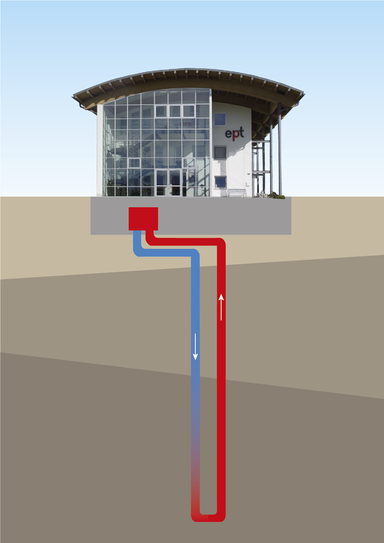
As regards the energy consumption associated with producing connectors, the ept plants’ resulting CO2 emissions have been being steadily reduced for a long time via the targeted use of different technologies. ept has achieved a reduction of more than 60 percent in the German plants in this manner since 2013.
In addition, the company is fully committed to the climate protection targets of the Paris Agreement COP2021 and the German Climate Change Act and aims to achieve net zero greenhouse gas emissions by 2035 at the latest. The climate protection target requires global greenhouse gas neutrality – in other words, the greenhouse gas emissions (GHG emissions) that are then still unavoidable must at least be cancelled out by capturing or removing greenhouse gases from the atmosphere.
As part of the global community, the European connector manufacturer ept bears responsibility for protecting the planet and is actively involved in the fight against climate change.
For example, ept has been extracting geothermal energy from deep boreholes for the Buching plant since 2013.
36 boreholes down to a depth of 80 meters generate an annual output of 297,000 kWh there. In Buching alone, this type of energy generation saves around 80,000 kg of CO2 per year.
Photovoltaic systems with an annual output of 55,000 kWh are also used to generate electricity at the same site. Across all sites, energy-intensive and sometimes environmentally harmful illuminants such as fluorescent tubes have been successively replaced by economical LED products, and in the electroplating facilities at the Augsburg site, the necessary process temperatures are generated by district heating. In addition, ept is focusing on optimizing existing production equipment, for example by manufacturing energy-saving presses in-house or reusing the waste heat from the ventilation systems at the Peiting site by means of heat exchangers. Currently, the company's internal vehicle pool is also being adapted to the latest technology and converted to e-mobility.
In addition, the company is fully committed to the climate protection targets of the Paris Agreement COP2021 and the German Climate Change Act and aims to achieve net zero greenhouse gas emissions by 2035 at the latest. The climate protection target requires global greenhouse gas neutrality – in other words, the greenhouse gas emissions (GHG emissions) that are then still unavoidable must at least be cancelled out by capturing or removing greenhouse gases from the atmosphere.
As part of the global community, the European connector manufacturer ept bears responsibility for protecting the planet and is actively involved in the fight against climate change.
For example, ept has been extracting geothermal energy from deep boreholes for the Buching plant since 2013.
36 boreholes down to a depth of 80 meters generate an annual output of 297,000 kWh there. In Buching alone, this type of energy generation saves around 80,000 kg of CO2 per year.
Photovoltaic systems with an annual output of 55,000 kWh are also used to generate electricity at the same site. Across all sites, energy-intensive and sometimes environmentally harmful illuminants such as fluorescent tubes have been successively replaced by economical LED products, and in the electroplating facilities at the Augsburg site, the necessary process temperatures are generated by district heating. In addition, ept is focusing on optimizing existing production equipment, for example by manufacturing energy-saving presses in-house or reusing the waste heat from the ventilation systems at the Peiting site by means of heat exchangers. Currently, the company's internal vehicle pool is also being adapted to the latest technology and converted to e-mobility.
Sustainable beyond the product
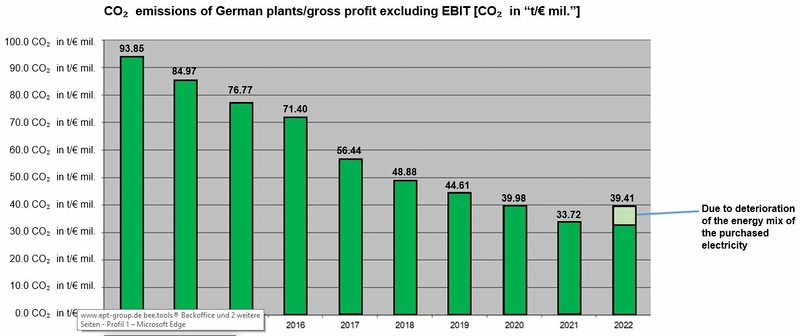
For ept, sustainably set up and environmentally friendly production processes are not only the order of the day, but rather traditionally an elementary component of corporate management. Thus, ept operates a certified environmental management system in accordance with ISO 14001:2015 as well as energy management in accordance with ISO 50001:2011. These two management systems are reviewed and certified at regular intervals by an external certification company.
To the certificates »
By also sourcing key components such as connectors from European production for high-value products, European-based customers not only reduce their strategic dependence on East Asian suppliers, but also make an active contribution to improving the global environmental balance at the same time.
To the certificates »
By also sourcing key components such as connectors from European production for high-value products, European-based customers not only reduce their strategic dependence on East Asian suppliers, but also make an active contribution to improving the global environmental balance at the same time.
Interested?
look for your connector from European production right away:
product list




